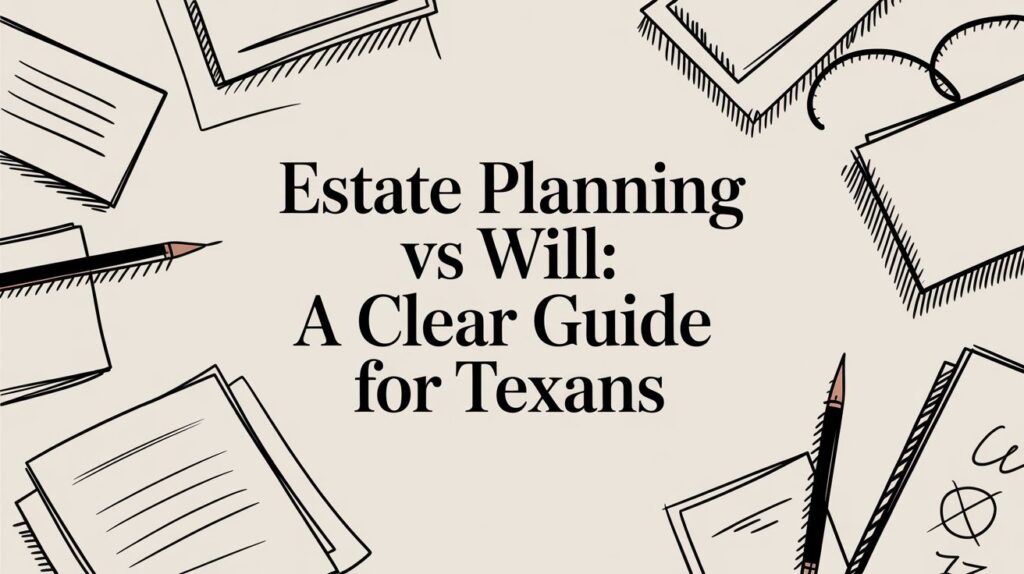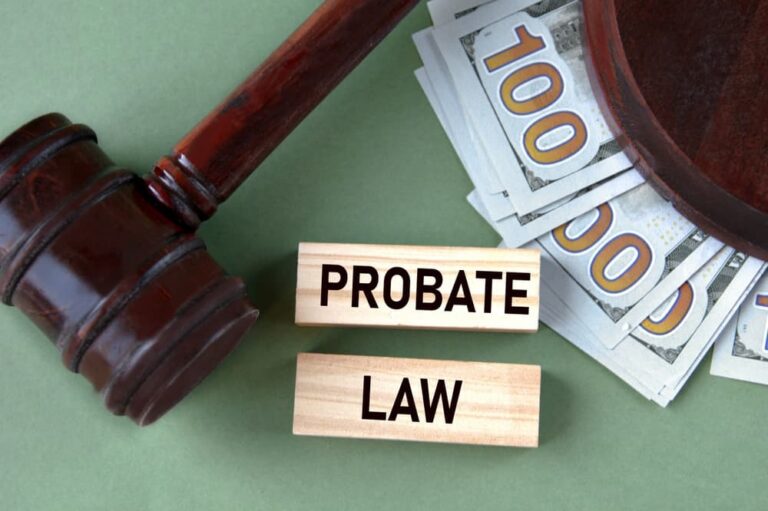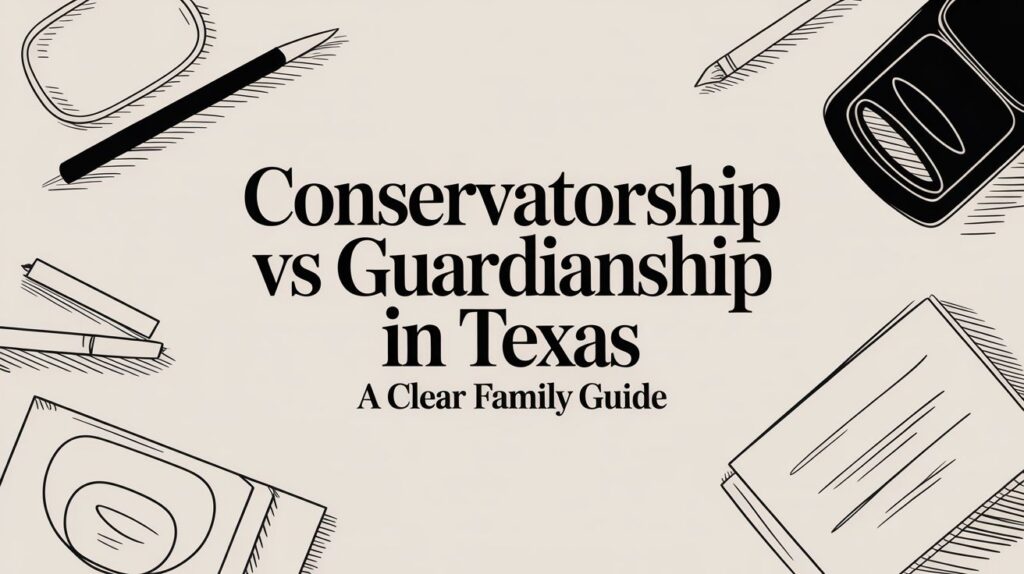In the intricate dance of estate planning, probate often takes center stage—a legal performance laden with complexities and delays that can test even the most patient souls. Yet, amidst the intricacies of probate lies a lesser-known backstage passage: the realm of non-probate assets.
Picture this: a labyrinth where your wealth can navigate swiftly, bypassing the entanglements of probate court. Welcome to the world where assets transcend the confines of traditional probate proceedings, offering a smoother and more efficient transfer of wealth.
What are Non-Probate Assets in Texas?
In Texas, non-probate assets are akin to safeguarding your legacy. These assets, like butterflies in the financial world, can bypass probate court and ensure a smoother transfer of wealth. They are like the butterflies of the financial world, gracefully transferring ownership upon the passing of their owner.
Some examples of non-probate assets include life insurance policies with designated beneficiaries, which allow beneficiaries to receive the policy’s proceeds directly upon the policyholder’s death without probate court involvement. Retirement accounts, such as 401(k), IRA, or other retirement vehicles with beneficiary forms, also possess the power of designated beneficiaries. These assets can leapfrog probate hurdles, safely delivering the rightful inheritance to chosen heirs.
Tenancy-by-the-Entirety ownership is another type of non-probate asset that takes on a magical quality in estate planning. This bond between spouses is protected under Texas law, and in the event of one spouse’s passing, the surviving consort inherits full ownership of the kingdom, free from probate. This symbolizes the enduring love and unity between partners, even after death.
Transfer-on-death (TOD) registrations are another option for certain Texas assets, such as vehicles. With a simple designation, owners can ensure that their vehicles pass seamlessly to chosen beneficiaries upon their demise, sparing them the hassle of probate proceedings. This is a poetic gesture, a parting gift from one journey’s end to another’s beginning, carried out without legal intervention.
In summary, Texas offers a unique landscape rich with non-probate assets that can bypass probate court and ensure a smoother transfer of wealth. By embracing the magic of non-probate assets, Texans can confidently navigate the winding paths of estate planning, knowing that their legacy will endure beyond the confines of probate court.
Benefits of Owning Non-Probate Assets
Estate planning is a complex process involving legalities and emotions but also includes the elusive world of non-probate assets. These assets offer a smoother, more streamlined transfer of wealth, avoiding the complexities of probate court. They provide privacy for your legacy, shielding it from public scrutiny.
Non-probate assets come in various forms, such as life insurance policies and retirement accounts, offering opportunities to safeguard your wealth and legacy. They also provide control and flexibility by allowing you to designate your heirs directly, ensuring your wishes are honored without probate court interference.
In Texas, where independence reigns supreme, non-probate assets shine even brighter. With a keen understanding of Texas law and estate planning strategies, you can chart a course toward financial freedom and peace of mind. The rewards are truly worth the effort, and with knowledge as your compass and non-probate assets as your guiding stars, you can navigate the complexities of legacy with confidence and grace.
Strategies for Maximizing Non-Probate Assets
Estate planning involves a complex process that can unlock the secrets of non-probate assets, providing a smoother journey for wealth beyond probate. To ensure financial security and peace of mind, it is essential to review beneficiary designations, consider joint ownership with the right of survivorship, and consult with an estate planning attorney.
Reviewing beneficiary designations is crucial as it helps accurately record and update beneficiaries, which can lead to assets being caught in probate’s treacherous currents. Joint ownership with the right of survivorship can ensure a seamless ownership transition upon death, but it may expose assets to unforeseen creditors or legal disputes. It is important to carefully weigh the risks and rewards, as joint ownership may expose assets to unforeseen creditors or legal disputes.
Consulting with an estate planning attorney can help navigate the legal intricacies of estate planning with confidence, ensuring that wealth remains secure and legacy endures. By crafting meticulous trust agreements and unraveling the complexities of beneficiary designations, an estate planning attorney can confidently guide you through the legal intricacies of estate planning, ensuring that your legacy shines brightly for generations to come.
By embracing strategies for maximizing non-probate assets, such as reviewing beneficiary designations, considering joint ownership with the right of survivorship, and consulting with an estate planning attorney, you can navigate the wealthy waters with skill and grace, ensuring that your legacy shines brightly for generations.
Important Considerations
Estate planning is a complex process that involves legal jargon and financial intricacies, often involving non-probate assets. However, it’s important to remember that traditional estate planning is still relevant, encompassing various facets serving distinct purposes. A will remains a cornerstone for addressing probate assets and appointing guardians for minor children, ensuring wishes are honored long after the deceased.
Tax implications can arise from transferring ownership of certain non-probate assets, such as capital gains and estate taxes. It’s crucial to consult with financial advisors and tax professionals to minimize tax burdens while maximizing wealth preservation for future generations. Transparency is also essential in estate planning, as beneficiaries may need to be made aware of the existence and location of non-probate assets, leading to chaos and potential discord among heirs.
Open lines of communication are paramount to avoid these issues. Informing loved ones about non-probate assets within your estate provides clarity and peace of mind during uncertain times. Estate planning requires careful consideration and meticulous planning. While non-probate assets offer an escape from probate, they do not absolve us of our duty to safeguard our legacy and provide for those we hold dear. As readers navigate the complexities of estate planning, embracing the challenges and emerging victorious in preserving your wealth for generations is essential.
Probate vs. Non-Probate Assets: Choosing the Right Approach
Estate planning is a complex process that involves choosing between probate or non-probate methods. The choice depends on the type of asset and the value it holds. Probate assets, such as real estate, bank accounts, and investments, typically go through probate only if structured to avoid it. Non-probate assets, such as life insurance policies, retirement accounts, and trusts, often bypass probate entirely, transferring wealth to designated beneficiaries.
Tax implications also influence this decision. Probate assets may be subject to estate taxes, potentially increasing the estate’s tax burden. Non-probate assets often skirt these taxes, offering a tax-efficient means of passing wealth to beneficiaries. Understanding the tax implications of each approach is crucial for optimizing asset distribution and minimizing the tax burden on the estate.
Control is another important factor to consider. Probate allows for court oversight, ensuring assets are distributed according to the decedent’s wishes, but it comes at the cost of time and expense. Non-probate assets offer greater control, allowing individuals to designate beneficiaries directly and bypass the probate process. For those who value autonomy and efficiency in estate planning, non-probate methods offer an attractive alternative.
The emotional toll of probate can prolong the healing process for grieving loved ones. Opting for non-probate methods can spare their beneficiaries the stress and frustration of probate, allowing them to focus on honoring their loved one’s memory.
In conclusion, the decision to use probate or non-probate methods for specific assets is deeply personal and influenced by factors such as asset composition, tax implications, the desired level of control, and emotional considerations. By carefully weighing these factors and consulting with legal and financial professionals, individuals can navigate a course that safeguards their wealth and preserves their legacy for future generations.








